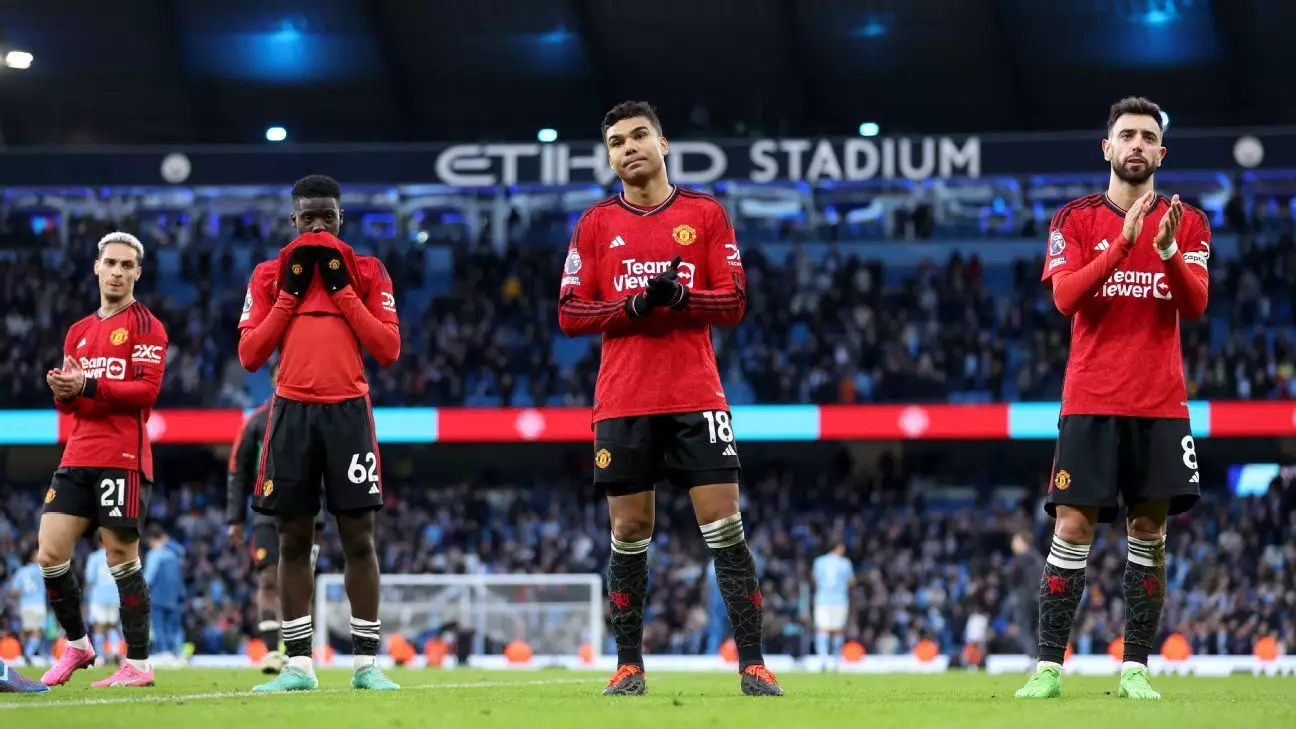Manchester City has once again proven their dominance in the Premier League by clinching their fourth consecutive title. Led by manager Pep Guardiola, the team’s relentless pursuit of success has solidified their place as one of the greatest Premier League teams of all time. With standout performances from players like Erling Haaland, Phil Foden, and Rodri, City’s impeccable form has been a force to be reckoned with. However, the looming financial charges issued by the Premier League pose a significant challenge to City’s future success, casting a shadow over their remarkable achievements.
Liverpool’s season was marked by the bombshell announcement of Jurgen Klopp’s departure, which triggered a mixed bag of results for the team. While their attacking prowess shone through with victories in the League Cup, defensive lapses proved costly in crucial matches against Crystal Palace and Everton. The team’s inability to maintain momentum following Klopp’s announcement raised questions about their ability to sustain high-level performances throughout the season.
Aston Villa’s surprise fourth-place finish and qualification for the UEFA Champions League showcased their remarkable progress under manager Unai Emery. The team’s lethal attack, spearheaded by Ollie Watkins, propelled them to new heights, despite facing challenges on the road and in European competitions. However, their loss in the Europa Conference League semifinals served as a reality check, highlighting areas for improvement as they prepare for the upcoming season.
Chelsea’s rollercoaster season saw them secure a spot in European competition with a strong finish under the guidance of Mauricio Pochettino. While the team’s form was inconsistent for most of the season, the performances of young talent like Cole Palmer provided a glimmer of hope for the future. However, questions remain about the team’s overall identity and tactical approach, indicating the need for strategic improvements heading into the next campaign.
Newcastle United’s seventh-place finish was a commendable accomplishment, but their inconsistent form and defensive vulnerabilities raised concerns about their ability to compete at the highest level. The team’s heavy reliance on Alexander Isak for goals underscored the need for greater squad depth and defensive solidity. Despite their strong finish to the season, Newcastle must address key areas of weakness to sustain their success in the long term.
Manchester United’s disappointing season culminated in their worst-ever Premier League finish, highlighting systemic issues within the team. The lack of defensive cohesion, midfield stability, and attacking creativity hampered their performance throughout the season, casting doubt on the team’s ability to compete for top honors. The departure of head coach Erik ten Hag further complicates the club’s future, signaling a period of uncertainty and transition ahead.
Crystal Palace’s dramatic surge in the final stages of the season led to an impressive top-half finish, fueled by the emergence of key players like Eberechi Eze and Michael Olise. The team’s attacking prowess and newfound resilience showcased their potential for future success, but retaining their star players amidst interest from larger clubs poses a significant challenge. Under new boss Oliver Glasner, Palace will need to build on their late-season momentum to establish themselves as a consistent force in the Premier League.
Despite a mid-table finish, Fulham’s debut season under Andoni Iraola demonstrated significant progress and potential for the future. The team’s attractive style of play, coupled with solid performances from key players like Dominic Solanke, earned them praise and respect from fans and pundits alike. While there were initial doubts about Iraola’s appointment, his tactical acumen and ability to guide the team to a comfortable finish silenced his critics. Fulham’s strong foundation and promising talent bode well for their continued development in the seasons to come.
Everton’s survival in the Premier League was a hard-fought achievement, marred by challenges both on and off the pitch. The team’s points deduction, lack of goals, and ongoing ownership issues cast a shadow over their season, despite notable wins and performances. Manager Sean Dyche’s ability to rally the team in crucial moments and secure important victories showcased his managerial prowess, but the club’s need for stability and sustained success remains a pressing concern. Everton must address their underlying issues and chart a course for long-term prosperity to avoid future relegation battles.
Sheffield United’s dismal season epitomized their struggles to adapt to the demands of the Premier League. With a leaky defense and a lack of attacking threat, the team’s shortcomings were starkly evident in their abysmal goal difference and overall performance. The need for a major overhaul and rejuvenation is imperative for Sheffield United to bounce back from their relegation and reestablish themselves as a competitive force in English football.
